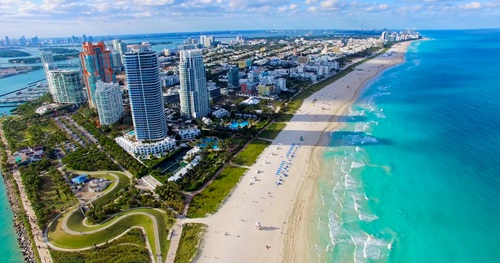
Photo © Zimmytws | Dreamstime.com
That was a close one.
On the heels of an announcement by Governor Ron DeSantis, noting that Florida had reached historic high record numbers of tourists in 2024 and “continues to be the top destination for travelers from all over the world” came word of legislation that threatened the state’s tourism industry, including the existence of sports commissions, CVBs and other organizations.
The bills, HB 7033 (Taxation) and HB 1221 (Local Option Taxes), were, according to proponents, designed to give local governments more flexibility over tourism tax funds.
But according to SmartMeetings.com, the legislation would have had the effect of changing tourist development taxes (TDTs) from limited use revenue to general revenue, which would need to be used to offset county property taxes beginning in 2026.

That sounds innocuous but the bills actually have the effect of dissolving tourist development councils and promotional agencies unless approved by a resolution of the board of county commissioners.
Tourism pushed back in a big way. Charlie Justice, CEO of the Tampa Bay Beaches Chamber of Commerce, told Travel and Tour World that by removing dedicated funding, the legislation would have forced tourism agencies into budgetary limbo, creating long-term instability for a sector that thrives on predictable, consistent funding.
“You can’t just stop telling your story and expect visitors to show up,” Justice noted. “Marketing isn’t optional—it’s essential.”
Destinations Florida Executive Director Robert Skrob, in an interview with Florida Politics, called the bill “an act of economic sabotage.“
Don Welsh, President and CEO of Destinations International, penned an op-ed for the Tampa Bay Times that described the proposal as “an economic cliff” that could have sweeping implications, from dwindling tourism revenue to the eventual necessity of a state income tax.
“Florida doesn’t have a state income tax. Why? Because visitors pay their way,” he wrote, adding that it is no accident that Florida has a successful tourism industry that supports two million jobs. Instead, it’s the result of “decades of work by destination organizations, community leaders and local businesses.”
But last Monday, noted The Orlando Sentinel, the bill died:
“A state legislative proposal to free up hundreds of millions of dollars a year in tourist tax revenue for local governments to spend on mass transit, roads and other projects that benefit Florida residents has been scrapped. The proposal was removed from the Republican-led $1.3 billion House tax package (HB 7031) in the last hours of budget negotiations Friday after an intense lobbying campaign by the tourism industry.”
While CVBs, sports commissions and others are able to breathe again, it should be remembered that this is not the first time Florida has been hit with anti-business legislation. In 2017, both Enterprise Florida (the state’s economic development arm) and Visit Florida both were under attack from then-House Speaker Richard Corcoran who said the organizations had become irrelevant.

Visit Florida survived the campaign but it was the beginning of the end for Enterprise Florida; in 2023, DeSantis signed HB 5 into law, dissolving the EDC and consolidating its functions with those of the Department of Economic Opportunity and removing certain programs and incentives.
And the old adage of “Those who do not learn from history are doomed to repeat it” speaks to this issue here. Halfway across the country is a case study of what can happen when similar legislation goes through.
Colorado saw its tourism marketing budget annihilated in 1993, and Florida Politics points out that a paper by Longwoods International CEO Bill Siegel claimed the state “over time” lost $2 billion in annual revenue as a result.
The decline was clear enough that some funding was restored in 2000. By 2006, tourism marketing in the Centennial State was restored with a $19 million budget.

